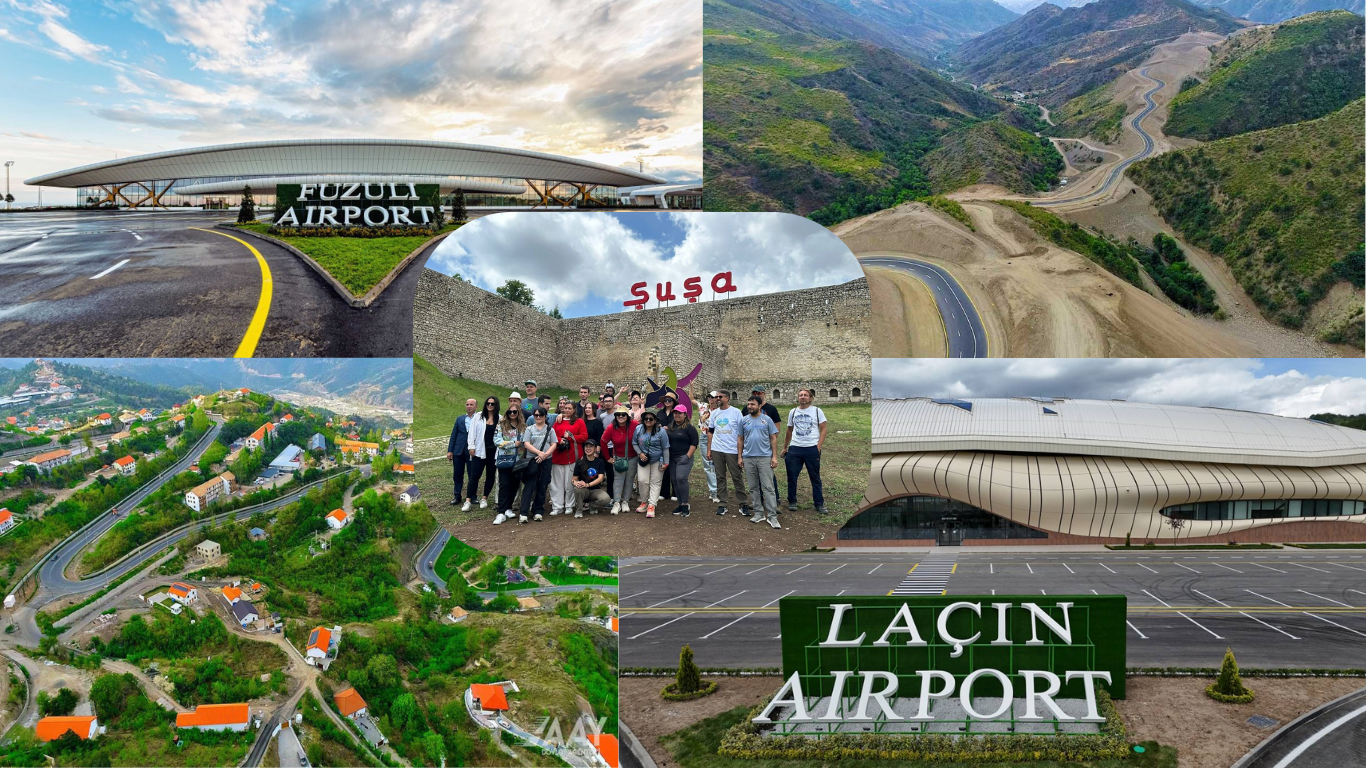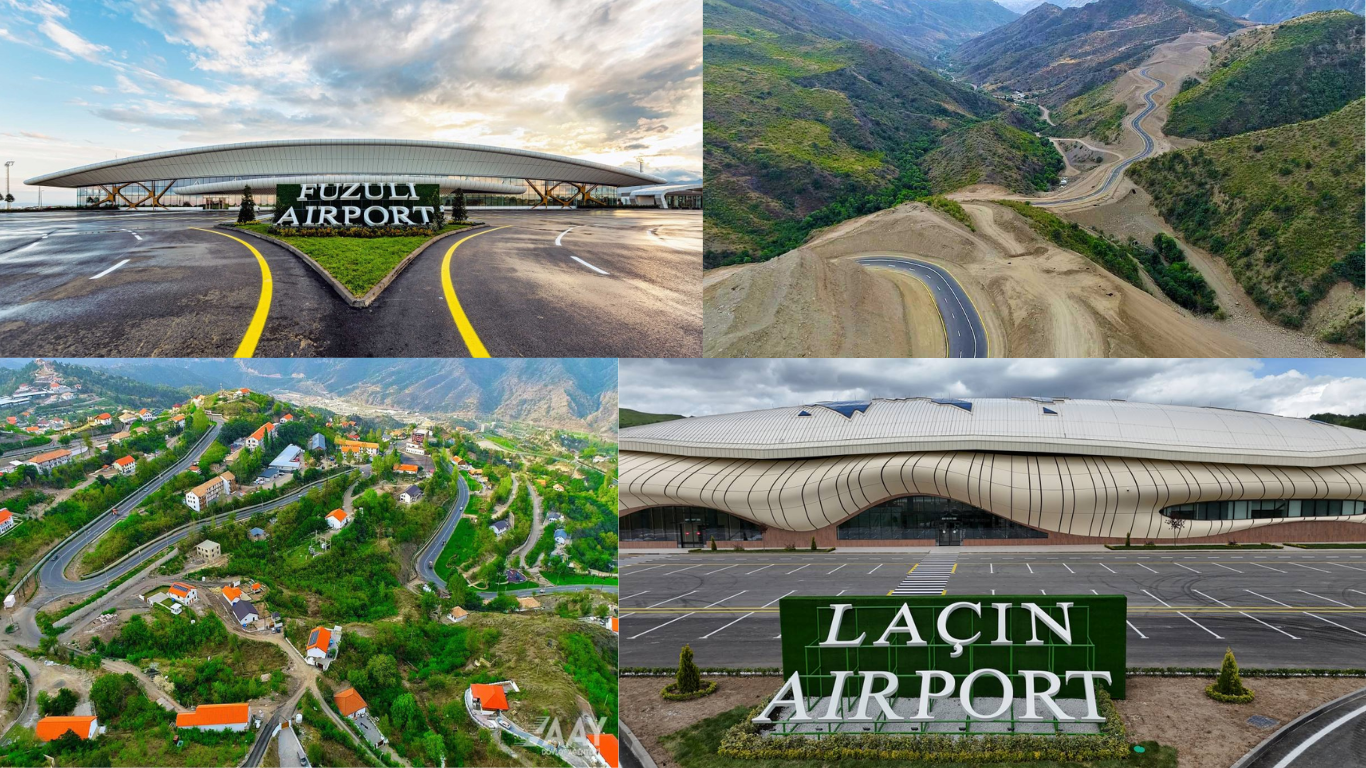ECO region emerges as major source of tourists fueling economic diversification

We often think of economic strength in terms of factories, pipelines, and trade deals. But sometimes, growth arrives on foot, carrying a suitcase and a camera. In the case of Azerbaijan, the remarkable rise in regional tourism — particularly from member states of the Economic Cooperation Organisation (ECO) — is emerging as a quiet but potent driver of the national economy.
Tourism has long been considered a soft contributor to GDP, often viewed as seasonal, vulnerable, and secondary. But Azerbaijan is beginning to challenge that narrative. In the first five months of this year, over 161,000 visitors from ECO countries travelled to Azerbaijan, a significant increase over the same period last year. These visitors didn’t just come to see; they came to spend. The result? A 22% jump in tourism revenue from the ECO region alone, totalling more than 265 million manats.
That figure may sound modest compared to oil exports or infrastructure budgets, but it matters — not only for what it represents but for where it goes. Unlike resource wealth, which flows through centralised channels, tourism income is more diffused. It filters down to taxi drivers, hotel clerks, family-run restaurants, and artisans in small towns. In this sense, tourism is not only an economic input — it is a democratizing force.
The spending patterns are also telling. Most of the money from tourists from ECO member states has gone toward transportation and accommodation. That means more bookings for regional airlines, fuller hotel rooms in Ganja, Gabala, and Baku, and steady work for travel operators. It also means demand for better infrastructure, improved services, and innovation in the hospitality sector. These are long-term economic enablers that ripple outward.
What makes this trend more meaningful is its regional context. ECO is not just a diplomatic acronym. It represents a trade and travel corridor stretching from Istanbul to Islamabad, from Tehran to Tashkent. For Azerbaijan to become a hub in this corridor is not simply a matter of national pride — it is a matter of long-term strategic value. Tourism may not replace oil, but it offers something just as important: resilience.
And resilience is precisely what modern economies need. Azerbaijan’s pursuit of diversification is well-documented, and rightly so. But this particular surge in tourism is not about glossy campaigns or showpiece events. It is about trust and familiarity. ECO citizens are coming to Azerbaijan not because it is exotic, but because it is accessible, affordable, and increasingly well-connected. That kind of traffic is sustainable.
Moreover, tourism has a multiplier effect that deserves more attention. When visitors arrive, they don’t just spend — they signal opportunity. New cafes open, new jobs are created, and new networks are formed. And when regional travel becomes routine, investment often follows. A Pakistani entrepreneur visiting Baku today might return next year with a business proposal. A Turkish family vacationing in Gabala may one day invest in a local hotel. Tourism, when steady, becomes the seedbed of commerce.
This dynamic was further underlined during the recent ECO Summit held in Khankendi, which for the first time brought high-level ECO delegations to a city that symbolises both Azerbaijan’s territorial restoration and its post-conflict reconstruction. The summit’s location sent a powerful message: integration, not isolation, is the way forward. Tourism was high on the agenda, not just as a cultural bridge but as a driver of reconstruction and reconciliation in newly reintegrated regions.
During the summit, Azerbaijan’s President Ilham Aliyev emphasised the country’s commitment to expanding regional air and land connectivity, including new routes linking ECO capitals to Azerbaijani tourist centres. Several ECO members expressed support for joint initiatives in heritage tourism, halal-friendly travel services, and cross-border packages, which are already being piloted between Azerbaijan, Iran, and Turkmenistan. The summit also witnessed the signing of a memorandum to enhance cooperation in tourism training, digital visa facilitation, and multi-entry tourism corridors.
Tourism Potential in Garabagh and East Zangazur
A critical new chapter in this story lies in Garabagh and East Zangazur, regions rich in natural beauty, cultural heritage, and historical monuments that were previously inaccessible. Now, thanks to rapid reconstruction, these areas are being integrated into Azerbaijan’s tourism strategy. Shusha, known as the cultural capital of Azerbaijan, and Hadrut, with its pristine mountainous landscapes, are poised to become new magnets for ECO travellers seeking authentic, affordable, and historical experiences.

To support this vision, Azerbaijan has launched two new international airports — Fuzuli International Airport in Garabagh and the newly inaugurated Lachin International Airport in East Zangazur. These airports are designed not just as logistics hubs, but as gateways for regional tourism. Their presence dramatically lowers the cost and travel time for ECO citizens, particularly from neighbouring Iran, Pakistan, and Central Asia, who now have easier access to these newly opened regions. The airports also serve charter tours, pilgrimage routes, and eco-tourism circuits that are being developed with ECO partners.
This renewed spirit of collaboration is not just diplomatic theatre; it aligns with existing trends. ECO citizens already enjoy favourable visa regimes, shared cultural ties, and deep linguistic overlaps. But what the Khankendi summit affirmed is the political will to turn tourism into an integrated regional policy tool, with mutual economic and social returns.
In this light, the rise in tourism is not merely a story of culture or leisure. It is a quiet affirmation that Azerbaijan is finding its place in the region not just as a producer or broker, but as a destination. And in a world where mobility and connectivity shape economic futures, that matters more than ever.
Azerbaijan doesn’t need to reinvent itself to thrive in this space. It only needs to continue doing what it’s doing: ensuring safety, building infrastructure, and encouraging the free movement of people and ideas across a shared geography. The visitors will come. And with them, prosperity will follow.
Here we are to serve you with news right now. It does not cost much, but worth your attention.
Choose to support open, independent, quality journalism and subscribe on a monthly basis.
By subscribing to our online newspaper, you can have full digital access to all news, analysis, and much more.
You can also follow AzerNEWS on Twitter @AzerNewsAz or Facebook @AzerNewsNewspaper
Thank you!

